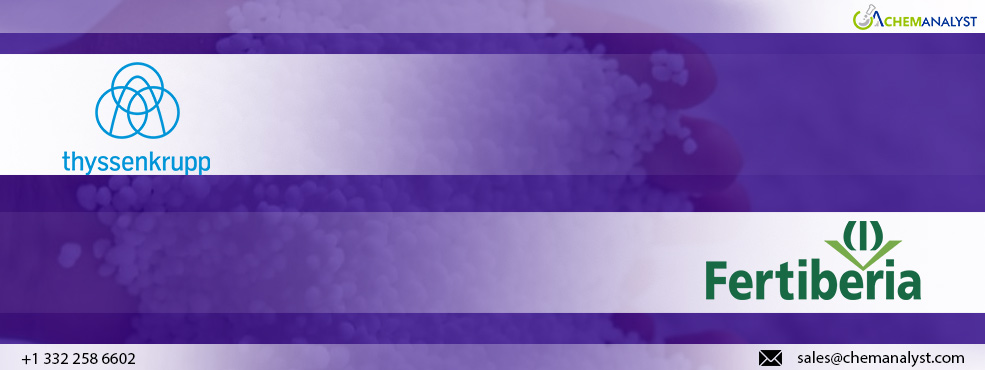Welcome To ChemAnalyst

Carbon reduction stands as a critical strategy in safeguarding the climate, particularly when existing infrastructure can be repurposed to embrace carbon-free technologies. This rationale drove Grupo Fertiberia to enlist the expertise of thyssenkrupp Uhde in diminishing the carbon footprint of its established ammonia facility in Puertollano, Spain. Originally licensed and constructed by thyssenkrupp Uhde in 1969 with a nameplate capacity of 600 metric tons per day (mtpd), the plant has remained operational, initially utilizing naphtha as its primary feedstock.
Since the 1980s, Fertiberia has been actively reducing its greenhouse gas (GHG) emissions through multiple upgrades of the unit. thyssenkrupp Uhde played a pivotal role in assisting the company in this endeavor by modernizing the plant to enable the transition to natural gas as feedstock and enhancing the energy efficiency of the facility. In 2022, aligning with its Net Zero By 2035 strategy, Fertiberia initiated the production of green hydrogen (via a 20MW water electrolysis unit) and green ammonia at its Puertollano site, marking a significant milestone as a global trailblazer in the fertilizer sector's energy transition.
Presently, thyssenkrupp Uhde is leveraging its expertise to advance the transition of feedstock and partially shift production from conventional grey to environmentally-friendly green ammonia by integrating green hydrogen.
David Herrero, Industrial Director at Fertiberia, expressed, "We are pioneering within the agri-food sector by pledging to achieve carbon neutrality within the next decade. This initiative marks another stride towards our objective of establishing ourselves as global leaders in the production of low-carbon ammonia."
Nadja Håkansson, CEO of thyssenkrupp Uhde, stated, "We are immensely proud to be chosen once more by our longstanding partner Fertiberia to advance the decarbonization of its operations. Through the progressive transition from fossil-based ammonia production to green ammonia production, we possess a significant tool for driving the green revolution in agriculture and various industry sectors."
The overhaul strategy aims to uphold the plant's nameplate capacity while minimizing alterations to hardware wherever feasible. To further curtail greenhouse gas emissions, a substantial portion of natural gas will be substituted with green hydrogen. The requisite green hydrogen will be sourced from a 50MW water electrolysis unit powered by renewable energies. Through this adjustment, up to 40% of the site's production will undergo decarbonization.
With a history spanning over a century, thyssenkrupp Uhde specializes in engineering and constructing chemical plants, boasting a portfolio of more than 2,500 plants globally. Notably, thyssenkrupp Uhde has constructed 130 ammonia plants, including some of the world's largest, frequently establishing new industry benchmarks like the uhde® Dual-Pressure technology. Beyond the fertilizer sector, thyssenkrupp Uhde provides clean ammonia technologies and ammonia storage solutions, crucial for the shift towards clean energy and the utilization of ammonia as an energy and hydrogen carrier.
We use cookies to deliver the best possible experience on our website. To learn more, visit our Privacy Policy. By continuing to use this site or by closing this box, you consent to our use of cookies. More info.
